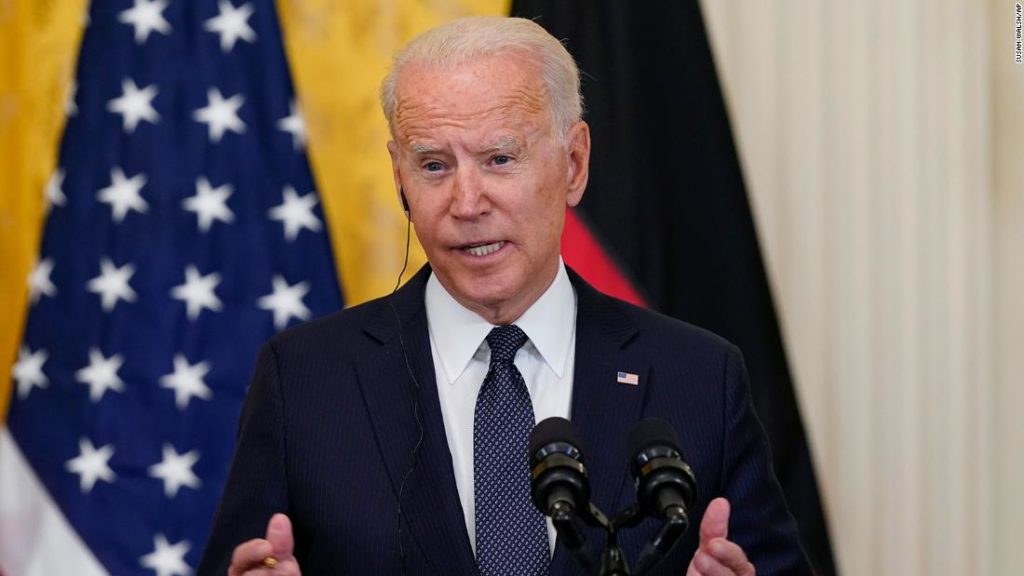“The situation in Hong Kong is deteriorating, and the Chinese government is not keeping its commitment that it made, how it would deal with Hong Kong,” Biden told reporters at the White House on Thursday, referencing Beijing’s pledge to maintain the city’s semi-autonomous status for 50 years after its 1997 handover from Britain.
Biden described the announcement as “more of an advisory as to what may happen with Hong Kong,” without divulging more details, and experts believe it won’t go much beyond flagging the rising risks.
This won’t be the first time that Washington is urging caution about Hong Kong, which has undergone significant change since pro-democracy, anti-government protests roiled the city in 2019. China cracked down on Hong Kong last year by implementing a sweeping national security law that signaled Beijing is taking ever tighter control. The law raised questions about the city’s future as an international business center.
Biden’s business advisory “probably won’t pack an immediate punch,” according to Brock Silvers, chief investment officer for Hong Kong-based Adamas Asset Management. He added that “few US companies currently operating in Hong Kong will be surprised at its content or otherwise unaware of Hong Kong’s growing risks.”
American companies have also been treading carefully in Hong Kong for a while, too, as the distinction between operating there and in mainland China fades.
The forthcoming announcement from the Biden administration is a “statement of the obvious,” according to William Reinsch, a trade expert at the Center for Strategic and International Studies who served for 15 years as president of the National Foreign Trade Council.
“That makes it essentially a warning to US companies that the risk of being [in Hong Kong] has gone up significantly and puts the government in the position of being able to say, ‘We told you so,’ when something bad happens. And it will,” Reinsch added.
You may also like
-
Afghanistan: Civilian casualties hit record high amid US withdrawal, UN says
-
How Taiwan is trying to defend against a cyber ‘World War III’
-
Pandemic travel news this week: Quarantine escapes and airplane disguises
-
Why would anyone trust Brexit Britain again?
-
Black fungus: A second crisis is killing survivors of India’s worst Covid wave

